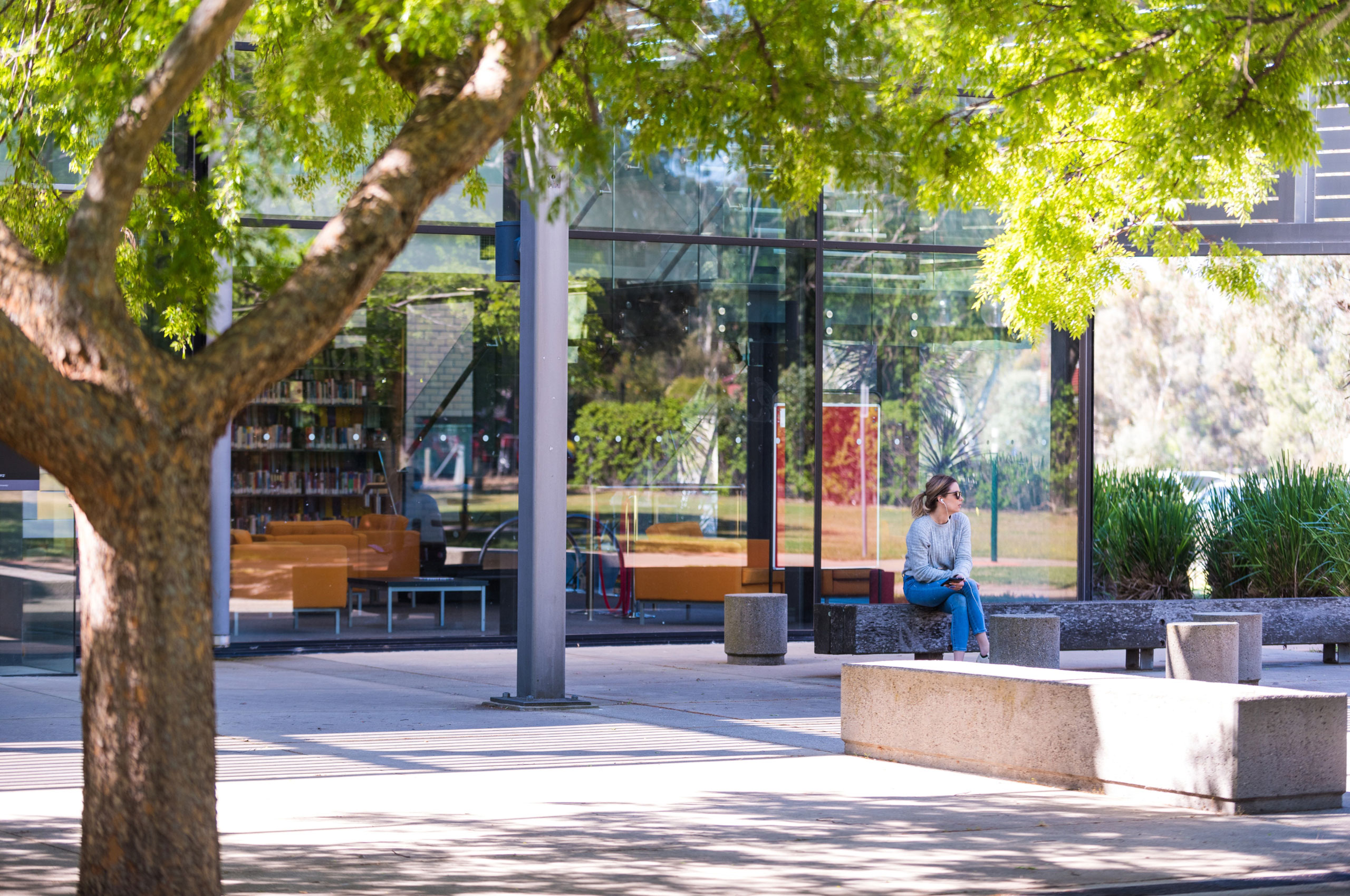About the Albury-Wodonga Campus

Established in 1991 through the integration of the Wodonga Institute of Tertiary Education (WITE), La Trobe’s Albury-Wodonga campus is one of the University’s four regional campuses. In its early years, the campus shared facilities with Wodonga TAFE, including the library – a partnership that continues today.
The campus moved to its permanent home at 133 McKoy Street, Wodonga in 1995, with the opening of the Michael J Osborne Building. Since then, it has seen steady development, including the Health Sciences Building (2000), David Mann Library (2002), Nancy F Millis Building (2005), and the campus café and student commons (2008). In 2012, the McFarlane Hill Residences added 28 additional on-campus accommodation beds.
In 2021, the campus proudly celebrated its 30th anniversary. Since opening, thousands of graduates have gone on to contribute to communities across regional Victoria and Australia in diverse fields.
Research is a key strength of the Albury-Wodonga campus. It is home to three University Research Centres – the Centre for Freshwater Ecosystems, the John Richards Centre for Rural Ageing Research and the Research Centre for Applied Alpine Ecology – as well as the Care Economy Research Institute.
Regional Advisory Board
Our Regional Advisory Boards (RABs) have been in existence for many years. The university has a strong focus on strengthening its regional campuses through its regional strategy.
Our Regional Advisory Board comprises members of the community who have an interest in higher education, its relationship with the region and bringing unique skills relevant to the strategic direction of the campus and university.
Biomedical labs
Built in 2019, our teaching laboratory consists of two modern laboratories, a preparation room, and an anatomy learning space. This $2 million laboratory uses high-tech equipment to deliver applied learning to students studying:
- in our medical program
- biomedical science
- life sciences.
The anatomy space employs augmented reality and virtual reality systems to enhance learning in studies of human biology.
Clinical Learning Units (Nursing Labs)
These modern laboratories are set up like real-life hospital wards and allow students to practise their skills in a simulated environment before starting these practices outside university.
Centre for Freshwater Ecosystems (CFE)
The CFE is an independent research provider, with more than 25 years' experience in collaboration and alignment of the interests of research policy. This multi-disciplinary research centre focuses on teaching and researching across areas of:
- biodiversity
- ecosystem function
- resilience.
You will also use these facilities if you are studying psychology, and environmental and agricultural sciences.
David Mann Library
Our David Mann Library was designed by Woods Bagot and the building (by Zauner Constructions) began in 2001. It was opened for business for Semester 2, 2002 and formally opened on 15 October 2002 by the Chancellor, Professor Nancy F Millis. The guests of honour were Mr David and Mrs Elaine Mann.
In June 2003, the Royal Australian Institute of Architects awarded its regional prize to Woods Bagot (Victoria) for the David Mann Library. The citation stated, “Close co-ordination between the architects and staff has resulted in a building which is inviting and has great appeal to those who flock to use it.”
Care Economy Research Institute
As one of La Trobe's new flagship Research Institutes, CERI is aiming to break down silos in the health and social care sectors by supporting researchers and industry to co-design and implement the next generation of services.
Our researchers work across the breadth of the care economy from child protection, disability services, alcohol and other drugs, mental health services to aged care and more.
Book our Facilities
Explore the state-of-the-art facilities available at our Albury-Wodonga campus. Whether you're planning a conference, meeting, or event, our versatile spaces can accommodate your needs.
Visit our Booking Facilities page for detailed information and to make a reservation.
